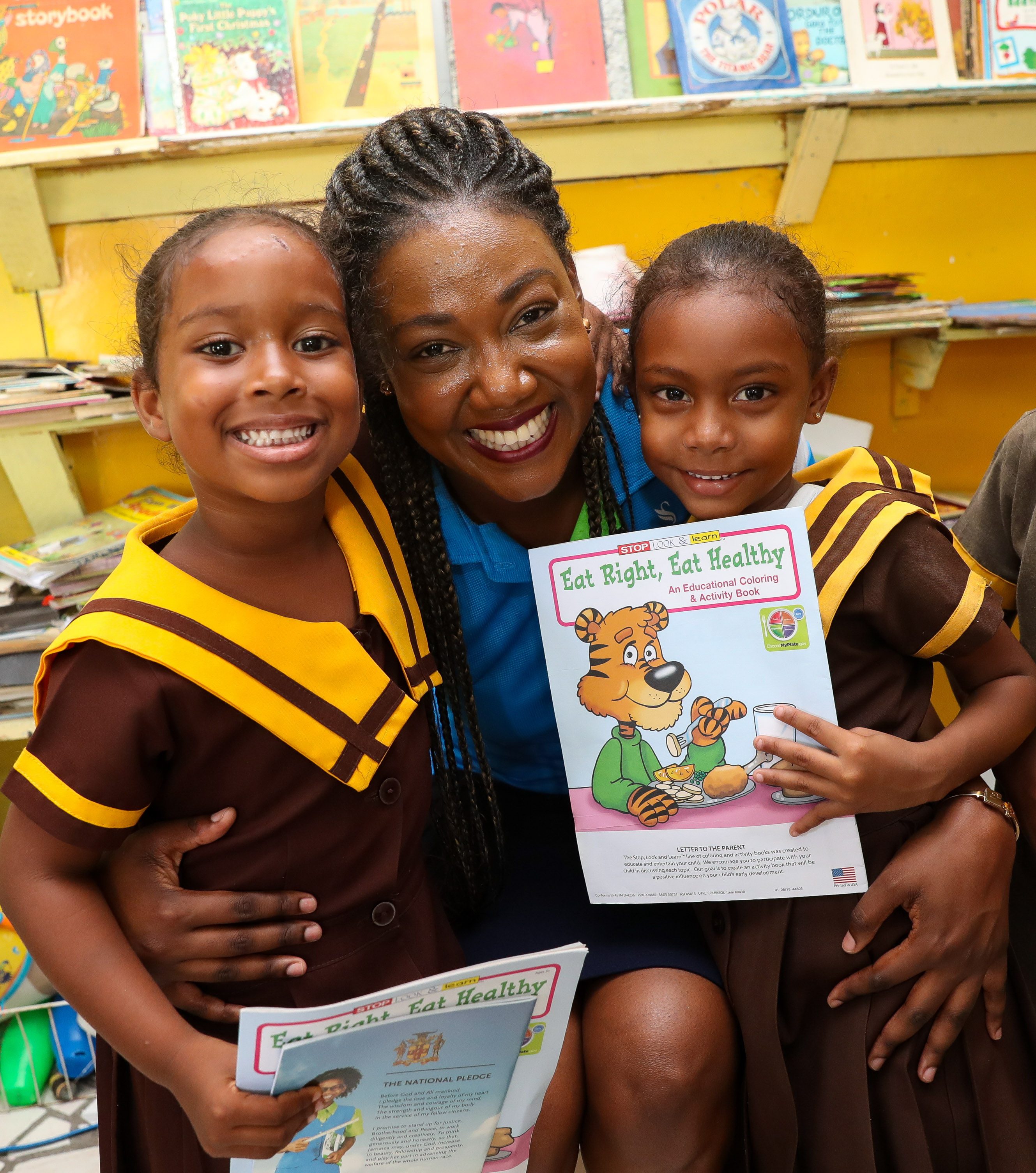Reading and Child Development
It is undeniable that a child’s reading skills are important to their success in school, work, and life in general. It is also very necessary to help ensure your child’s success by reading to them starting at a very early age. On Tuesday May 4, 2021, Jamaicans will celebrate Read Across Jamaica Day, the objective of which is to promote the significance of reading and literacy nationwide. The initiative, started by the Jamaica Teachers Association (JTA) in 2005, is part of activities to mark Education Week at the beginning of May each year.
The American Academy of Pediatrics recommends daily reading to children beginning by six months of age. The interaction between parent and child is an important part of looking at books together. Additionally, reading can be a fun and imaginative activity for children, which opens doors to all kinds of new worlds for them. Between the pages of a book, reading allows them to be transported from their own world to another, as they become immersed in the lives of fictional characters and learn about cultures entirely different from their own. New words and phrases are learnt as they experience a range of emotions, while acquiring skills and knowledge.
Research has identified five (5) essential early reading skills:
• Phonemic awareness — the ability to hear, identify, and play with individual sounds (phonemes) in spoken words
• Phonics — the ability to connect the letters of written language with the sounds of spoken language
• Vocabulary — words kids need to know to communicate effectively
• Reading comprehension — the ability to understand and get meaning from what has been read
• Fluency (oral reading) — ability to read text accurately and quickly
Some children have difficulty learning to read and the current pandemic, which has forced many children into home-schooling and online interactions, may increase those difficulties. When reading and language difficulties are identified at a young age, special teaching can then be given to help your child reach their full potential. Parents can also play a critical role in helping their children develop not only the ability to read, but also an enjoyment of reading. Start with teaching them by example, i.e., if you have books, newspapers and magazines around your house, and your child sees you reading them, then your child will learn that you value reading. The value of leading by example can never be overstated. Practice reading together so your child sees this as a fun, bonding activity. It will foster a language rich environment in your family while teaching your child that reading is important to you. It can also offer a chance to talk about the book and its themes which helps the child to develop analytical and critical thinking skills. This serves ultimately to really open the lines of communication between parent and child.
Because of the learning potential, the effects that reading has on child development are vast and multiple studies have highlighted its benefits. As such, teachers and parents are in a great position to ensure reading is a key part of children’s daily routine. The importance of reading for children cannot be underestimated as it benefits a child’s education, social and cognitive development, their wellbeing, and their mental health. Numerous pages of research conducted and commissioned by BookTrust UK have discovered the profound benefits of reading for a child’s development.
One study details the effects of reading on later literacy skills, facilitating social interaction between adults and children, and encouraging children to engage with the world around them. It also states how reading can be a ‘stable source of information’ throughout a child’s life. This stability allows them to access text in a constant fashion and can be especially beneficial for children growing up in challenging circumstances. There are other benefits that reading can have on a child’s development, including developing empathy, gaining deeper understanding and building stronger relationships as they grow.
The academic benefits of reading have been well publicized but what is less often considered is how those skills overlap into social situations. Social skills are a vital part of a child’s growth and development, however, while we are increasingly connected on the digital front, we are also becoming less connected in everyday life. More children are growing up in this fast-paced, frenetic environment and as they move on to adulthood and the job market, learning appropriate methods of social interaction at an early age will be even more important.
Reading is the key for lifelong learning, and if you can instill a love of reading at an early age, then a commitment to a life of learning is sure to follow. Children who value books are motivated to read on their own, and will likely continue to practice independent reading throughout the rest of their lives. When it comes to reading to your children, the benefits to your child’s life range far beyond the development of a close bond with them, though that is a vitally important one. Reading aloud to children, therefore, is truly the single-most important activity for building these essential skills that will last them a lifetime.
Written by:
Andre' W. Reid
Events/Communications Consultant
Andre Wayne Enterprise (A.W.E.)


